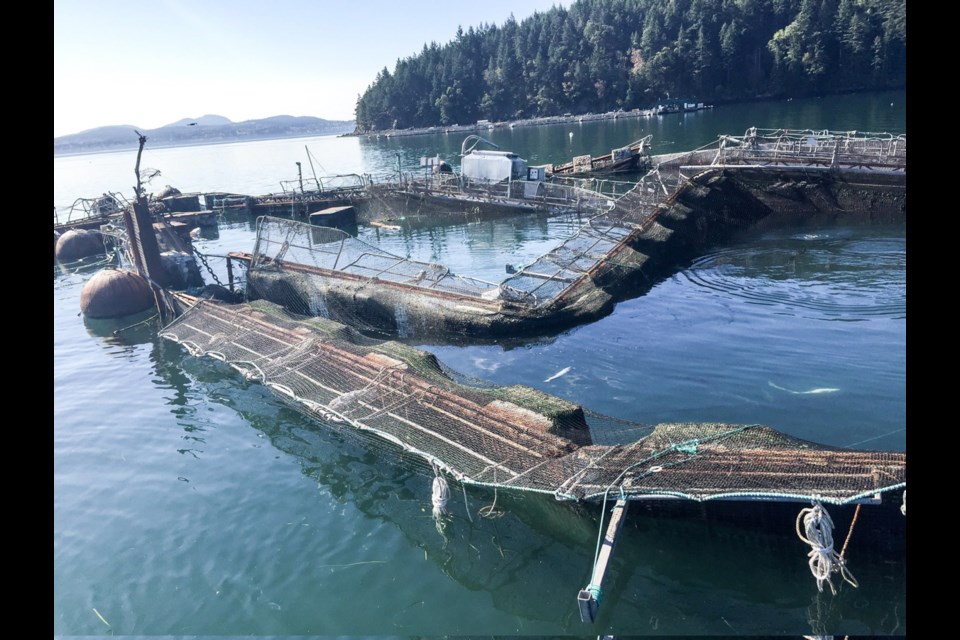Atlantic salmon, believed escaped in the collapse of net pens in Washington state last month, have been reported as far away as Tofino and Campbell River.
Byron Andres, senior aquaculture biologist for Fisheries and Oceans Canada and co-ordinator of the Atlantic Salmon Watch Program, said both fish were caught by sport fishermen, suggesting they were actively foraging in the wild.
Andres said a total of 42 Atlantic salmon have been reported, a significant increase over recent years. Last year and 2015, for examples, saw no Atlantic salmon reported.
The fish are believed to have come from a fish farm in the San Juan Islands, about 15 kilometres east of Victoria. An estimated 305,000 Atlantic salmon escaped on Aug. 19.
Fish farm operator Cooke Aquaculture said unusually high tides and currents caused the pens to implode.
Andres said just over 200,000 of the salmon have been caught.
Biologists are awaiting results of surveys of the stomach contents of the 42 fish to determine how successful the escapees have been at foraging in the wild.
The fish appeared to be in good shape, Andrews said, but that should not be taken as evidence of any success in the wild.
The escapees were all close to harvest — already big, 10 pounds and up, with the high fat body content common to farmed fish.
“I wouldn’t expect those fish, at this point, to be starving to death. However, I do expect that will be ultimate demise of a large portion of that population,” Andres said, noting that previous research suggests that escaped Atlantic salmon don’t forage much.
The San Juan escape set off alarms among fisherman and advocates of the wild fisheries who fear the non-native salmon could escape farm pens, becoming established in Pacific waters and competing with native species.
Of particular concern has been the proximity of the fish farm to the Fraser River, home to some of the largest wild salmon runs in the world.
Andres said at least two of the recovered Atlantic salmon were retrieved from gill nets operated by fishermen on the Fraser.
But he also said little consistent evidence has been found of Atlantic salmon becoming established in B.C. rivers. Investigations have shown no evidence of any ongoing spawning.
“The bulk of the evidence would suggest, at this point, that Atlantic salmon, for a variety of reasons, have a lot of difficulty establishing themselves in B.C. rivers,” Andres said.
He said efforts to recover the Atlantic escapees will continue.
Anyone who captures an Atlantic salmon — recognizable by its deep, large body, dark spots on its gill covers and the absence of spots on its tail — is asked to contact Fisheries and Oceans Canada at 1-888-356-7525. Keep the head and the stomach to pass along to officials.



